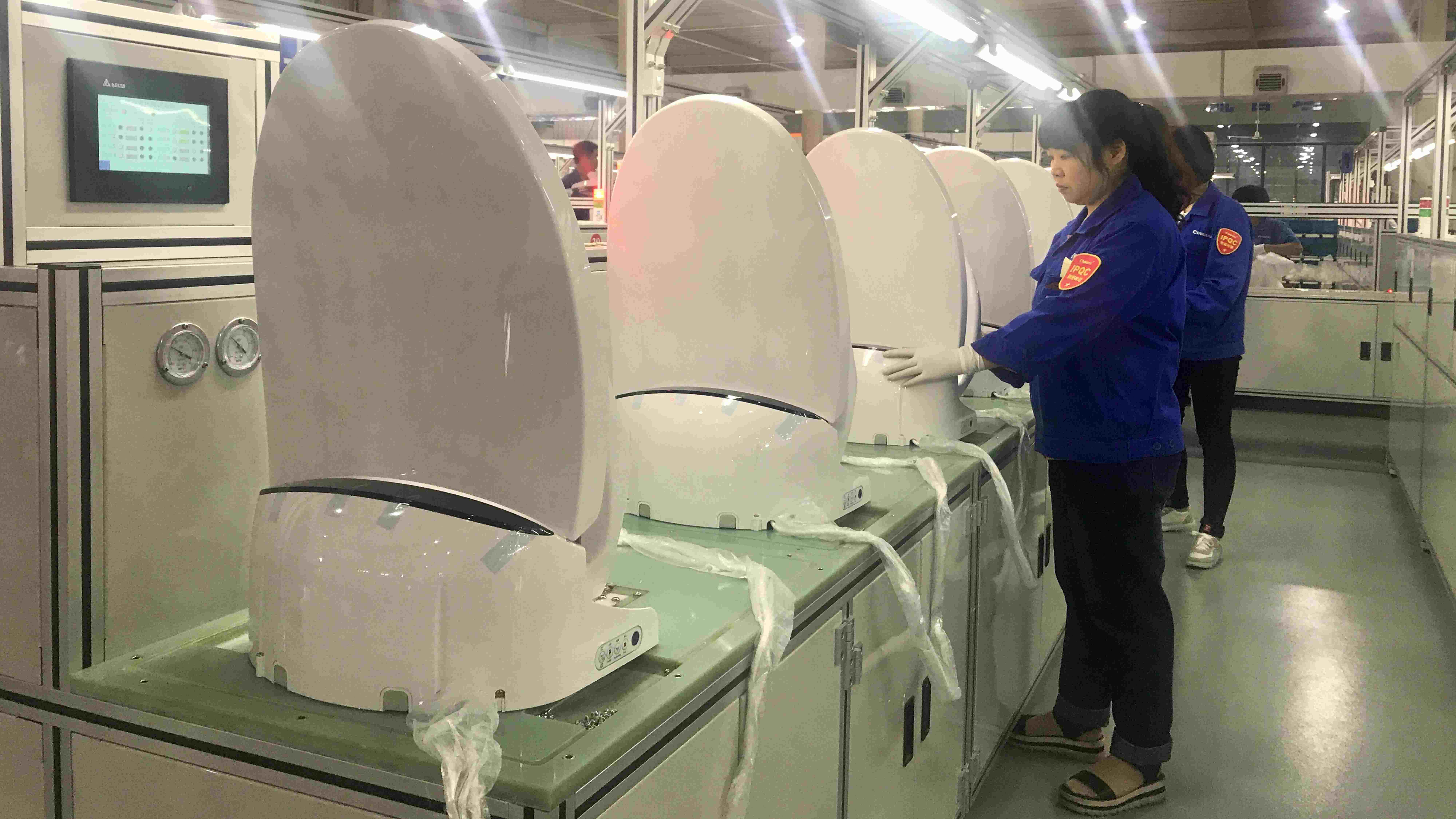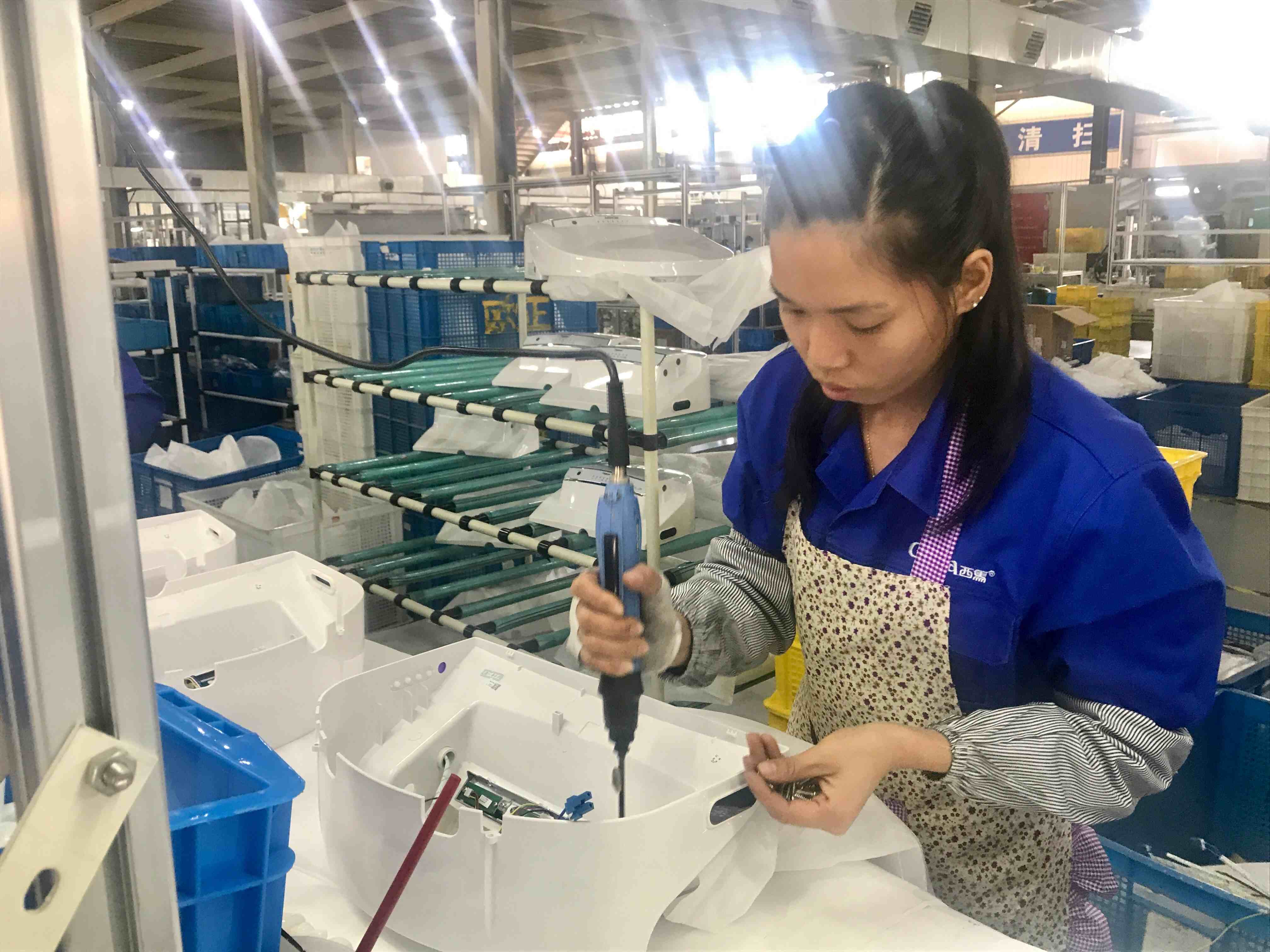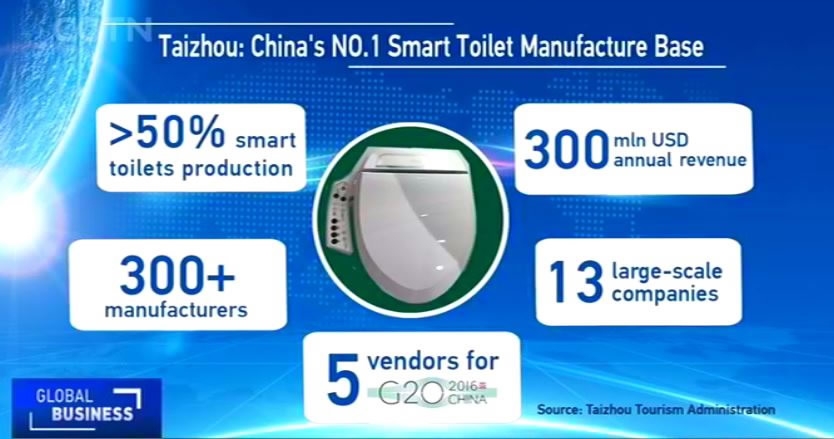
Business
21:20, 14-Nov-2017
How smart are China's electric toilets?
CGTN's Wang Mengzhen

Manufacturers in China were quick to notice when Chinese tourists in Japan were seen snapping up electronic toilets in 2015. Now, a little more than two years later, they are flushing their own smart sanitary facilities into the market.
With built-in bidets and instant heating functions, the toilet seats can wash, dry and disinfect bottoms, and even have voice recognition systems.
But Chinese manufacturers don't want to stop there and are thinking of lavatories that may one day conduct urine tests and even relieve constipation.
A factory in the city of Taizhou in eastern Zhejiang Province is the seat of the booming smart toilet industry in China.

A worker installs parts at the Coma plant in Taizhou./CGTN Photo.
A worker installs parts at the Coma plant in Taizhou./CGTN Photo.
The turning point for toilet makers here was in 2015. That was the year when the unassuming object appeared on the shopping list of Chinese visitors to Japan. Luxury bidet and heated toilet seats combining hygiene with utmost comfort became widely coveted in China. The same year, Chinese manufacturers like Coma saw an opportunity in the domestic market.
"Data in 2016 show over 400 million families in China. Wherever there is a home, there will be a need for toilets, and the possibility of installing smart toilets," said Li Baocong, executive assistant to the CEO of Coma, a leading smart toilet manufacturer in Taizhou. China's aging population also requires smarter products, he added.
Founded in 2007, the company experienced twists and turns as it took quite a long time for Chinese consumers to accept the concept of smart toilets.
It wasn't until two years ago that the industry began to flourish in Taizhou, where the country’s first electric toilet was actually produced in 1995.

As China’s largest intelligent toilet manufacturer, Taizhou produces over half of all the country’s smart toilets, with annual sales revenue reaching two billion yuan (300 million US dollars). There are over 300 producers – 13 of them large-scale. Five of them were suppliers for the 2016 Hangzhou G20 summit.
With innovative designs and strict quality control, Chinese companies realize it is now the time to restore the trust of domestic consumers.
"On one hand, we should learn from Japan and South Korea for their craftsmanship," Li said. "On the other hand, we are confident that Chinese products are as reliable as those made by our foreign counterparts. We have always put safety first in design and production and we have also taken into consideration of the damp bathroom environment."
Being smart is not the only pursuit for manufacturers. They have a more important mission: products that cater to more specific needs, especially in the medical sector.
"First, we would like to develop smart toilets with voice recognition system for the convenience of the elderly and children. We will also design customized products for medical use, such as toilets with a function to relieve constipation," said Ding Zhihui, sales manager of Coma.
"And we are planning to explore products that allow people to conduct urine tests directly at home," he added.
It may be difficult to envision how much smarter China-made toilets could be in the future.

SITEMAP
Copyright © 2018 CGTN. Beijing ICP prepared NO.16065310-3
Copyright © 2018 CGTN. Beijing ICP prepared NO.16065310-3